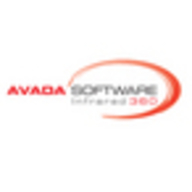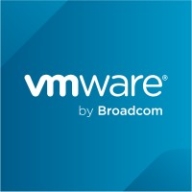

Avada Software Infrared360 and VMware vCenter compete in the enterprise IT management category. VMware vCenter has the upper hand in features and perceived value.
Features: Avada Software Infrared360 users highlight its comprehensive monitoring capabilities, customization options, and ease of integration. VMware vCenter is praised for its advanced virtualization features, scalability, and comprehensive management tools. VMware vCenter is favored for its extensive feature set that meets diverse enterprise needs.
Room for Improvement: Users suggest Avada Software Infrared360 could improve its documentation and complex initial setup. VMware vCenter users point out the need for a streamlined update process and better performance metrics. Both products have areas where users feel enhancements are needed, but the suggestions vary based on specific functionalities.
Ease of Deployment and Customer Service: Avada Software Infrared360 is recognized for its straightforward deployment and responsive customer support. VMware vCenter is noted for more complex deployment but offers comprehensive guides and professional support. Avada Software Infrared360 is seen as easier to deploy, while VMware vCenter provides more detailed support resources.
Pricing and ROI: Avada Software Infrared360 is valued for its cost-effectiveness and positive ROI feedback. VMware vCenter’s pricing is considered higher, but users find the investment worthwhile given its enhanced capabilities. Users perceive better ROI with Avada Software Infrared360 due to its lower cost, yet VMware vCenter’s superior features justify its price for many businesses.
| Product | Market Share (%) |
|---|---|
| VMware vCenter | 1.0% |
| Avada Software Infrared360 | 0.4% |
| Other | 98.6% |

| Company Size | Count |
|---|---|
| Small Business | 4 |
| Midsize Enterprise | 5 |
| Large Enterprise | 5 |
| Company Size | Count |
|---|---|
| Small Business | 15 |
| Midsize Enterprise | 5 |
| Large Enterprise | 18 |
Avada Software specializes in Enterprise Middleware solutions. Founded by some pioneers in SOA, MQ and J2EE technology, Avada’s Flagship product, Infrared360, is a holistic & innovative private cloud enabled portal providing self-service administration, monitoring, load testing, auditing & statistical reporting for Enterprise Middleware including IBM’s middleware stack of MQ, IIB (message broker), WAS, and Datapower, as well as other applications servers such as JBoss, TC Server, Weblogic, and other messaging technologies such as Tibco EMS and Kafka*.
Accessed via any web browser on any device, Infrared360 is a single web application, yet scales to 2500+ endpoints without deploying anything (no agents, no scripts) to those endpoints.
Using trusted ‘spaces’ and delegated visibility and control, the portal uniquely provides different business units or even different application users virtual ‘spaces’ in which to work. Within those spaces are only the objects and resources the user has been granted visibility. Role policy dictates permissions on those resources.
It is the ONLY Enterprise Messaging Solution with a built in SOA engine that lets you leverage internal and external services for managing and correcting problems within your middleware messaging environment.
*Kafka coming soon
VMware vCenter provides centralized management for virtual machines, offering enhanced resource control, high availability, and data protection. Its integration with NSX and vSAN simplifies infrastructure management, although improvements in pricing, licensing, and technical support are needed.
VMware vCenter streamlines the management of virtual infrastructures, facilitating scalability and elasticity through features like DRS, vMotion, and snapshot capabilities. While users appreciate its centralized control and extensive integration options, complexities in interface and upgrades are seen as challenges. Issues like fragmented licensing, difficult Fault Tolerance management, and high resource demands have been highlighted, alongside the need for enhanced security, monitoring, and seamless cloud integration. vCenter is widely used in data centers for overseeing large virtual environments, integrating cloud services, and providing infrastructure as a service.
What are the main features of VMware vCenter?
What benefits and ROI should users expect?
Industries such as IT, finance, healthcare, and government deploy VMware vCenter to manage their extensive virtual environments. Users rely on its automation and centralized management capabilities to ensure high performance and uptime in data center operations, often leveraging it to integrate with cloud services.
We monitor all Server Monitoring reviews to prevent fraudulent reviews and keep review quality high. We do not post reviews by company employees or direct competitors. We validate each review for authenticity via cross-reference with LinkedIn, and personal follow-up with the reviewer when necessary.